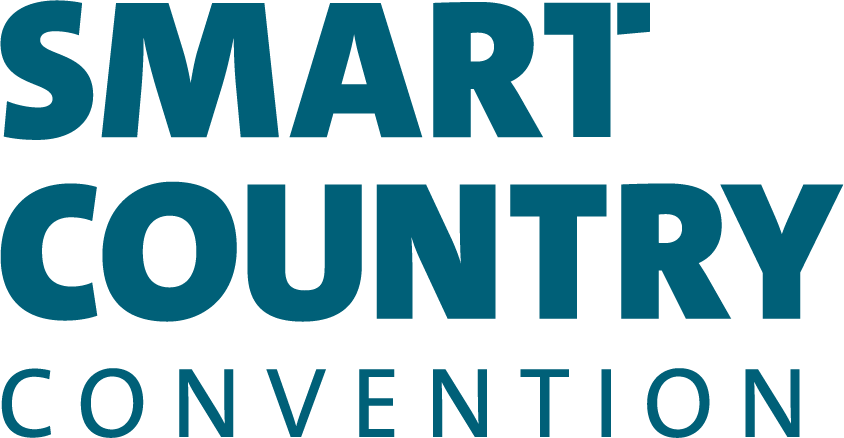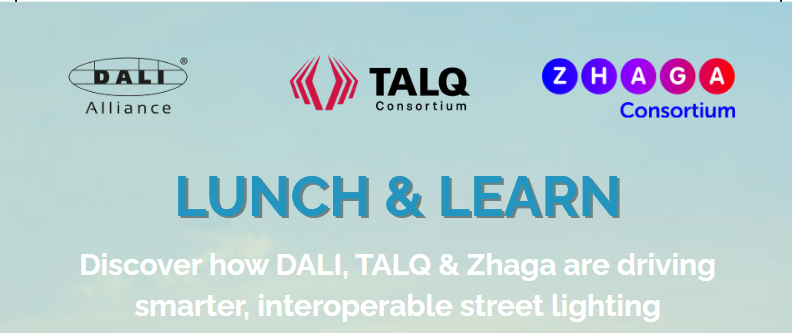New TALQ Certifications Enable More Interoperability in Smart Cities
Published on 2024-01-19
The TALQ Consortium lists currently 60 TALQ-certified products
The TALQ Consortium has announced further officially TALQ-compliant products. The TALQ-certified products include Central Management Software (CMS) and Outdoor Device Networks (ODN; Gateways) for various smart city applications from 42 different vendors globally. Certifying their products in line with the Smart City Protocol standard allows manufacturers to offer interoperability with products of other vendors. Furthermore, the growing number of TALQ certifications offers a broad choice of systems to cities and municipalities and the opportunity to avoid vendor-lock-in when investing in smart city applications, like Smart Street Lighting, Waste Management, Parking Solutions, Environmental Sensing or Traffic Control.
The TALQ Consortium, founded in 2012, has established a globally accepted standard for management software interfaces to control and monitor heterogeneous smart city applications. Since 2017, the TALQ Consortium has been verifying the correct implementation of its interface protocol (the TALQ Smart City Protocol) in numerous smart city solutions with a rigorous certification procedure. Around the world public tenders for a variety of smart city applications are increasingly including requests for compliance to standards.
This is one reason for a notable increase in the number of TALQ certifications in 2023. Manufacturer want to make sure that their systems are future-proof and allow interoperability with other market players.
The current 60 certified products implementing TALQ version 2 include 24 Central Management Software (CMS) and 36 Gateways (Outdoor Device Networks, ODN). The only reliable source to verify all officially TALQ-compliant solutions remains the Consortium’s website. There, visitors can also download ‘Capability Lists’ for each system.
“The TALQ initiative goes hand in hand with our overall strategy of developing and bringing to market an open system based on international standards. Within the lighting industry, we aspire to be best in class, and with TALQ we can move the needle a bit further while ensuring interoperability and openness. We strongly believe that an open system approach will be key now and in the future. Together with our partners, we want to develop the smart city approach, and TALQ is a key element and enabler.” says Daniel Unoson, General Manager of Seneco A/S.
Ken Cartmill, Vice President of Product Development at Liveable Cities, explains “Our certifications to the TALQ 2.5.0 Specification lowers our customers investment risk by offering a flexible platform that meets the ever-changing needs related to lighting controls, smart city sensors, and other smart technology applications. As a long-standing member in TALQ, we are proud to support the organizations goals of openness and interoperability in the evolving smart lighting market, and we believe ongoing investments in TALQ certification deliver meaningful value to our customers.”
“With openness and interoperability as part of our core values, we are very proud to have re-certified. The TALQ certification gives our customers peace of mind and future proof capability, ensuring they are not locked into a single vendor. In the Smart Cities market, with a myriad of data sources and platforms, this is particularly important to ensure that implemented systems are able to exchange data between each other in a standardised and easy way, without compromising quality or previous investments.” adds Paulo Reis, Customer Solutions Architect Manager at Schréder Hyperion.
“It is satisfying to see that the efforts of recent years have paid off and that numerous cities around the world are demanding TALQ as the protocol standard in their public tenders. In addition, members give us positive feedback that their own systems benefit from development against this global standard.” concludes Simon Dunkley, Secretary General of the TALQ Consortium.
Entire press release (English) as pdf
NOTA DE PRENSA (Español)
Las nuevas certificaciones TALQ facilitan la interoperabilidad en las ciudades inteligentes
La lista del TALQ Consortium incluye en la actualidad 60 productos con certificación TALQ
El TALQ Consortium ha anunciado la incorporación de nuevos productos oficialmente conformes con TALQ. Entre los productos con certificación TALQ se incluyen el software de administración central (CMS) y las redes de dispositivos de exteriores (ODN; Gateways) para diversas aplicaciones de ciudades inteligentes de 42 proveedores distintos de todo el mundo. La certificación de sus productos de acuerdo con el estándar del Smart City Protocol permite a los fabricantes ofrecer interoperabilidad con productos de otros proveedores. Además, el creciente número de certificaciones TALQ ofrece una amplia selección de sistemas para ciudades y municipios, así como la oportunidad de evitar caer en las redes de un solo proveedor cuando se invierte en aplicaciones para ciudades inteligentes como, por ejemplo, el alumbrado público inteligente, la gestión de residuos, las soluciones de aparcamiento, los sensores ambientales o el control del tráfico.
COMMUNIQUÉ DE PRESSE (Française)
L’interopérabilité entre systèmes intelligents pour les villes facilitée grâce aux nouvelles certifications TALQ
Le Consortium TALQ dénombre désormais 60 produits certifiés TALQ
Le Consortium TALQ a annoncé officiellement de nouveaux produits conformes à TALQ. Les produits certifiés TALQ incluent des logiciels de gestion centralisée et des réseaux de contrôleurs communicants et de passerelles pour les applications de la ville intelligente, de 42 fournisseurs différents dans le monde entier. Certifier leurs produits selon la norme TALQ permet aux fabricants d’assurer l’interopérabilité de leurs produits avec d’autres fournisseurs. En outre, le nombre croissant de certifications TALQ offre un large choix de solutions aux municipalités, et la possibilité d’éviter la dépendance à un seul fournisseur lors de leurs investissements dans des applications de ville intelligente telles que l’éclairage public intelligent, la gestion des déchets, les solutions de parking, la surveillance environnementale ou encore le contrôle de la circulation routière.
Communiquè de presse française (pdf)
PRESSEMELDUNG (Deutsch)
Neue TALQ-Zertifizierungen ermöglichen mehr Interoperabilität in ‚Smart Cities‘
Das TALQ Konsortium hat bisher 60 Produkten die TALQ-Zertifizierung erteilt
Das TALQ Konsortium hat die offizielle Zertifizierung von weiteren TALQ-konformen Produkten bekanntgegeben. Zu den TALQ-zertifizierten Produkten gehören zentrale Managementsysteme (CMS) und Outdoor-Gerätenetzwerke (ODN; Gateways) für verschiedene Smart-City-Anwendungen von 42 verschiedenen Anbietern weltweit. Die Zertifizierung von Produkten nach dem Smart-City-Protokoll-Standard ermöglicht Herstellern die Schaffung von Kompatibilität mit Lösungen anderer Anbieter. Darüber hinaus bietet die wachsende Zahl von TALQ-Zertifizierungen Städten und Gemeinden eine breite Auswahl an Systemen. So kann bei Investitionen in Smart-City-Applikationen – wie intelligente Straßenbeleuchtung, Abfall- oder Parkraum-Management, Umweltsensorik oder die Verkehrssteuerung – eine Herstellerbindung vermieden werden.
Vollständige Pressemeldung auf Deutsch (pdf)
보도 자료
새로운 TALQ 인증을 통한 스마트 시티에서 상호운용성 향상
TALQ Consortium은 현재 60개의 TALQ 인증 제품을 제시하고 있습니다.
스마트 시티 프로토콜용 글로벌 인터페이스 표준인 스마트 시티 애플리케이션을 개발한 TALQ Consortium은 공식적으로 TALA 호환 제품을 추가로 발표하였습니다. TALQ 인증 제품에는 전세계적으로 42개의 다른 공급업체에서 공급받은 스마트 시티 애플리케이션용 중앙 관리 소프트웨어(CMS) 및 실외 장치 네트워크(ODN)가 포함됩니다. 해당 제품을 스마트 시티 프로토콜 표준에 따라 인증을 받으면 제조업체는 다른 공급업체의 제품과 상호운용성을 제공할 수 있습니다. 아울러 수적으로 점증하는 TALQ 인증은 도시와 지자체에 광범위한 시스템 선택권을 제공하고 스마트 거리 조명, 폐기물 관리, 주차 관리, 환경 감지 또는 교통 통제와 같은 스마트 시티 애플리케이션에 투자할 때 공급업체에 종속되는 것을 피할 기회를 제공합니다.
新闻稿
全新 TALQ 认证使智慧城市更具交互操作性
目前,TALQ 联盟列出了 60 个 TALQ 认证产品
TALQ 联盟致力于为智慧城市应用打造全球接口标准《智慧城市协议》,现已公布更多官方 TALQ 合规产品。TALQ 认证产品包括适用于各种智慧城市应用的中央管理软件 (CMS) 和户外设备网络(ODN;网关),它们来自于全球 42 个不同的供应商。根据《智慧城市协议》标准对制造商的产品进行认证,可使这些制造商实现与其他供应商产品的交互操作性。此外,日益增多的 TALQ 认证为各个城市和市政当局提供了较为广泛的系统选择,在投资诸如智能路灯、废物管理、停车解决方案、环境感知或交通管制等智慧城市应用时,他们有机会避免过度依赖供应商。
back to all news




